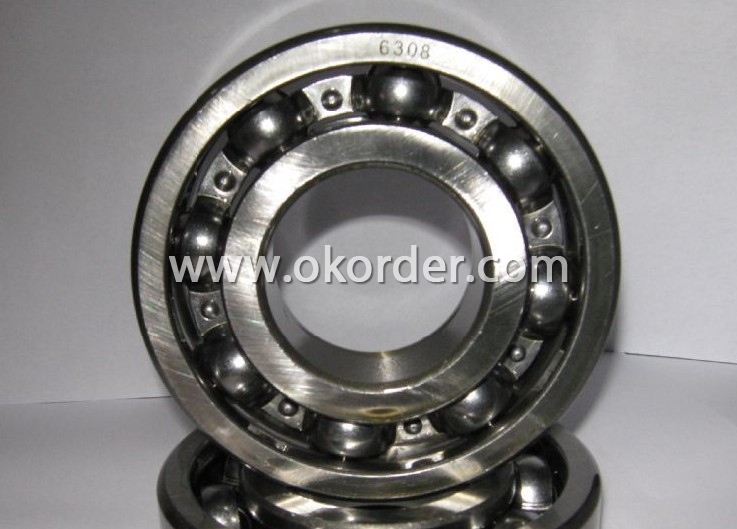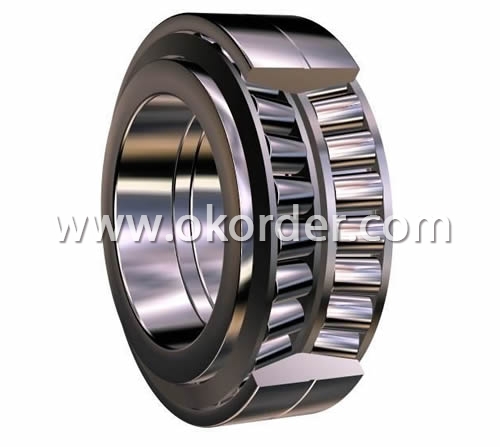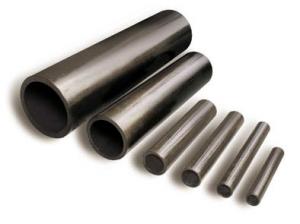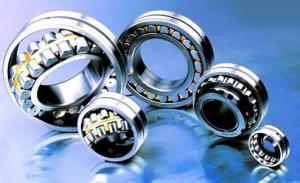Bearing Steel with High Quality
- Loading Port:
- China Main Port
- Payment Terms:
- TT or LC
- Min Order Qty:
- -
- Supply Capability:
- -
OKorder Service Pledge
OKorder Financial Service
You Might Also Like
Product Description:
OKorder is offering Bearing Steelsat great prices with worldwide shipping. Our supplier is a world-class manufacturer of steel, with our products utilized the world over. OKorder annually supplies products to European, North American and Asian markets. We provide quotations within 24 hours of receiving an inquiry and guarantee competitive prices.
Product Applications:
Our products have been used in all kinds of areas, such as aviation, aerospace, navigation, nuclear, energy, chemical industry, electronic information, petrochemical, automotive, instrument and meter, Communication ,transportation, and medical instruments, etc. Bearing ring,steel rolling mill ,machinery, 100Cr6 bearing steel ball is widely used in high-speed and low-noise bearing, bicycle, motorcycle, automobile, bags, electronics.
.
Product Advantages:
OKorder's Bearing Steels are durable, strong, and resist corrosion.
Main Product Features:
· Premium quality
· Prompt delivery & seaworthy packing (30 days after receiving deposit)
· Corrosion resistance
· Can be recycled and reused
· Mill test certification
· Professional Service
· Competitive pricing
Product Specifications:
Grade | AISI 52100, ASTM E52100, DIN 1.3505,JIS SUJ2, GCr15 |
Dimensions | Diameter: 30-60mm Length: 2000-13000mm or as required |
Shape | Round Bar |
Type | Alloy Steel Bar |
Delivery Condition | Black Surface |
Material | Bearing Steel |
Technique | Hot Rolled |
First the famous 1C-1.5Cr steel from which the majority of bearings are made. Its structure is apparently well-understood and the focus is on purity in order to avoid inclusions which initiate fatigue during rolling contact. Then there is the M50 steel and its variants, from which bearings which serve at slightly higher temperatures in aeroengines are manufactured, based on secondary-hardened martensite.
Tapered roller bearing are generally used to support combined load mainly consisting of radial load. Their cups are separable for easy assembling ,During mounting and using, radial clearance and axial clearance can be adjusted and preloaded mounting can be made.
FAQ:
Q1: Why buy Materials & Equipment from OKorder.com?
A1: All products offered byOKorder.com are carefully selected from China's most reliable manufacturing enterprises. Through its ISO certifications, OKorder.com adheres to the highest standards and a commitment to supply chain safety and customer satisfaction.
Q2: How do we guarantee the quality of our products?
A2: We have established an advanced quality management system which conducts strict quality tests at every step, from raw materials to the final product. At the same time, we provide extensive follow-up service assurances as required.
Q3: How soon can we receive the product after purchase?
A3: Within three days of placing an order, we will begin production. The specific shipping date is dependent upon international and government factors, but is typically 7 to 10 workdays.
Images:


- Q:How is maraging steel used in the production of aerospace components?
- Maraging steel is commonly used in the production of aerospace components due to its exceptional strength, toughness, and resistance to corrosion. Its unique properties make it ideal for manufacturing critical parts such as landing gear, engine components, and rocket nozzles. Additionally, maraging steel's high strength-to-weight ratio allows for lighter aircraft structures, leading to improved fuel efficiency and overall performance.
- Q:How does special steel contribute to the aerospace racing aftermarket industry?
- Special steel plays a crucial role in the aerospace racing aftermarket industry by offering superior strength, durability, and corrosion resistance properties. It is used in the manufacturing of various aircraft components, such as engine parts, landing gear, and structural elements, ensuring high performance and safety standards. The use of special steel in this industry allows for lighter and more efficient aircraft designs, enhancing speed and fuel efficiency. Additionally, special steel's resistance to extreme temperatures and stress makes it ideal for aerospace applications, contributing to the overall reliability and longevity of aftermarket products.
- Q:What are the main applications of special steel in the medical field?
- Special steel is widely used in the medical field for various applications. One of the main applications is in surgical instruments, where special steel alloys provide excellent strength, durability, and corrosion resistance. These alloys are also used in the production of medical implants, such as artificial joints and bone plates, due to their biocompatibility and ability to withstand the demanding conditions inside the human body. Additionally, special steel is utilized in medical devices like needles, catheters, and dental instruments, ensuring precision, hygiene, and reliability in these critical tools.
- Q:What are the different surface cleaning methods for special steel?
- Maintaining the quality and appearance of special steel requires the use of various surface cleaning methods. Here are some options: 1. To remove dirt, rust, or other contaminants from the steel surface, mechanical cleaning utilizes tools like wire brushes, sandpaper, or abrasive pads. This method effectively eliminates loose particles and light stains. However, it may not be suitable for stubborn dirt or deep stains. 2. Chemical cleaning is a commonly employed technique for special steel surfaces. It involves applying specific chemical solutions to dissolve and eliminate contaminants. The choice of chemicals depends on the type of dirt or stain. Acid-based cleaners work well for rust removal, while alkaline cleaners are effective against grease or oil stains. 3. Electrochemical cleaning employs an electrical current to eradicate contaminants from the steel surface. This method requires submerging the steel in an electrolyte solution and applying a direct current. As a result, the contaminants dissolve and separate from the surface. It is crucial to monitor this method closely to avoid any damage to the steel. 4. High-pressure water cleaning, also known as water blasting, removes dirt, paint, or other contaminants from the steel surface by using pressurized water. This method is particularly effective for heavy stains or coatings and is commonly used in industrial cleaning processes. 5. Steam cleaning is a gentle technique that uses high-temperature steam to loosen and eliminate dirt, grease, or other contaminants from the steel surface. It is a non-abrasive method that can effectively clean delicate or sensitive surfaces without causing any damage. It is important to consider the specific type of steel, the nature of the contaminants, and the desired level of cleaning when selecting the appropriate surface cleaning method. Consulting experts or following manufacturer guidelines is recommended to ensure the best cleaning method for a particular type of special steel.
- Q:How is special steel used in the marine supply chain?
- Special steel is widely used in the marine supply chain for various applications. It is commonly used in the construction of ships and offshore structures due to its high strength, corrosion resistance, and durability. Special steel is used for manufacturing ship hulls, propeller shafts, engine components, and other critical parts that require exceptional strength and resistance to harsh marine environments. Additionally, special steel is utilized in the production of marine equipment such as anchors, chains, wire ropes, and connectors, ensuring their reliability and safety in maritime operations.
- Q:What are the main applications of special steel in the shipbuilding industry?
- Special steel is widely used in the shipbuilding industry for various applications. Some of the main applications include the construction of ship hulls, decks, and superstructures, as well as the manufacturing of critical components such as propeller shafts, rudders, and marine engines. The high strength, corrosion resistance, and toughness of special steel make it ideal for withstanding the harsh marine environment and ensuring the safety and durability of ships.
- Q:How is special steel used in the production of engine components?
- Special steel is used in the production of engine components due to its exceptional strength, durability, and resistance to heat and corrosion. It is commonly used to manufacture parts such as crankshafts, camshafts, connecting rods, and valves, which are subjected to high stress and temperature conditions. The special steel's properties enable these components to withstand the demanding operating conditions of engines, resulting in enhanced performance, reliability, and longevity.
- Q:How does the corrosion resistance of special steel compare to regular steel?
- Generally, special steel outperforms regular steel in terms of corrosion resistance. Special steel is specifically engineered to possess enhanced resistance against corrosion, thanks to its unique composition and manufacturing process. It often contains higher levels of alloying elements like chromium, nickel, and molybdenum. These elements create a protective layer on the steel's surface, preventing it from reacting with corrosive substances. In contrast, regular steel tends to have lower corrosion resistance due to its composition and lack of alloying elements. It is more susceptible to rusting and other forms of corrosion when exposed to moisture, atmospheric gases, or chemicals. Additionally, special steels can undergo additional treatments such as heat treatment, passivation, or coating. These treatments further elevate their corrosion resistance by forming a barrier against corrosive agents. As a result, the lifespan and durability of the steel are extended in corrosive environments. To summarize, special steel surpasses regular steel in terms of corrosion resistance due to its composition, alloying elements, and additional treatments. This quality makes it the preferred choice in applications where corrosion resistance is crucial, such as marine environments, chemical processing plants, or infrastructure exposed to harsh weather conditions.
- Q:What are the different methods for quenching special steel?
- Quenching is a critical step in the heat treatment process of special steel, as it helps to achieve the desired mechanical properties and improve the material's hardness and strength. There are several methods for quenching special steel, each with its own advantages and considerations. 1. Oil Quenching: This is one of the most commonly used methods for quenching special steel. The steel component is immersed in oil, which acts as a cooling medium. Oil quenching provides a moderate rate of cooling, allowing for controlled and uniform hardening. It is suitable for a wide range of steel grades and can prevent cracking or distortion. 2. Water Quenching: Water quenching is a faster cooling method compared to oil quenching. It provides rapid heat extraction, resulting in higher hardness and strength. However, the high cooling rate can also lead to increased risk of cracking or distortion, especially with thicker sections. Water quenching is commonly used for low-alloy steels and some high-alloy steels. 3. Polymer Quenching: Polymer quenching involves using a specialized polymer solution as the cooling medium. This method provides a controlled cooling rate, offering a balance between the slower oil quenching and faster water quenching. Polymer quenching can be particularly suitable for steels with complex shapes or critical dimensions, as it reduces the risk of distortion and cracking. 4. Air Quenching: Air quenching is a slower cooling method that involves allowing the steel component to cool in ambient air. It is typically used for steels with lower hardenability, as it provides a more gradual cooling rate. Air quenching can help to reduce the risk of distortion and cracking, but it may result in lower hardness and strength compared to other quenching methods. 5. Salt Bath Quenching: Salt bath quenching involves immersing the steel component in a molten salt bath as the cooling medium. This method provides a controlled and uniform cooling rate, reducing the risk of distortion and cracking. Salt bath quenching is particularly suitable for complex-shaped or delicate parts, as it minimizes the thermal stress during cooling. It is important to note that the choice of quenching method depends on various factors, such as the steel grade, desired hardness, component size and shape, and the required mechanical properties. Proper selection and implementation of the quenching method are crucial to achieving the desired material characteristics and ensuring the overall quality of the special steel product.
- Q:How is special steel used in the oil and gas industry?
- Special steel is extensively used in the oil and gas industry for various critical applications. It is used in the construction of drilling equipment, pipelines, and storage tanks due to its exceptional strength, corrosion resistance, and ability to withstand extreme operational conditions. Special steel also plays a vital role in the production and refining of oil and gas, as it is used in the manufacturing of valves, pumps, and other components that ensure efficient and safe operations.
1. Manufacturer Overview |
|
|---|---|
| Location | |
| Year Established | |
| Annual Output Value | |
| Main Markets | |
| Company Certifications | |
2. Manufacturer Certificates |
|
|---|---|
| a) Certification Name | |
| Range | |
| Reference | |
| Validity Period | |
3. Manufacturer Capability |
|
|---|---|
| a)Trade Capacity | |
| Nearest Port | |
| Export Percentage | |
| No.of Employees in Trade Department | |
| Language Spoken: | |
| b)Factory Information | |
| Factory Size: | |
| No. of Production Lines | |
| Contract Manufacturing | |
| Product Price Range | |
Send your message to us
Bearing Steel with High Quality
- Loading Port:
- China Main Port
- Payment Terms:
- TT or LC
- Min Order Qty:
- -
- Supply Capability:
- -
OKorder Service Pledge
OKorder Financial Service
Similar products
New products
Hot products
Related keywords





























